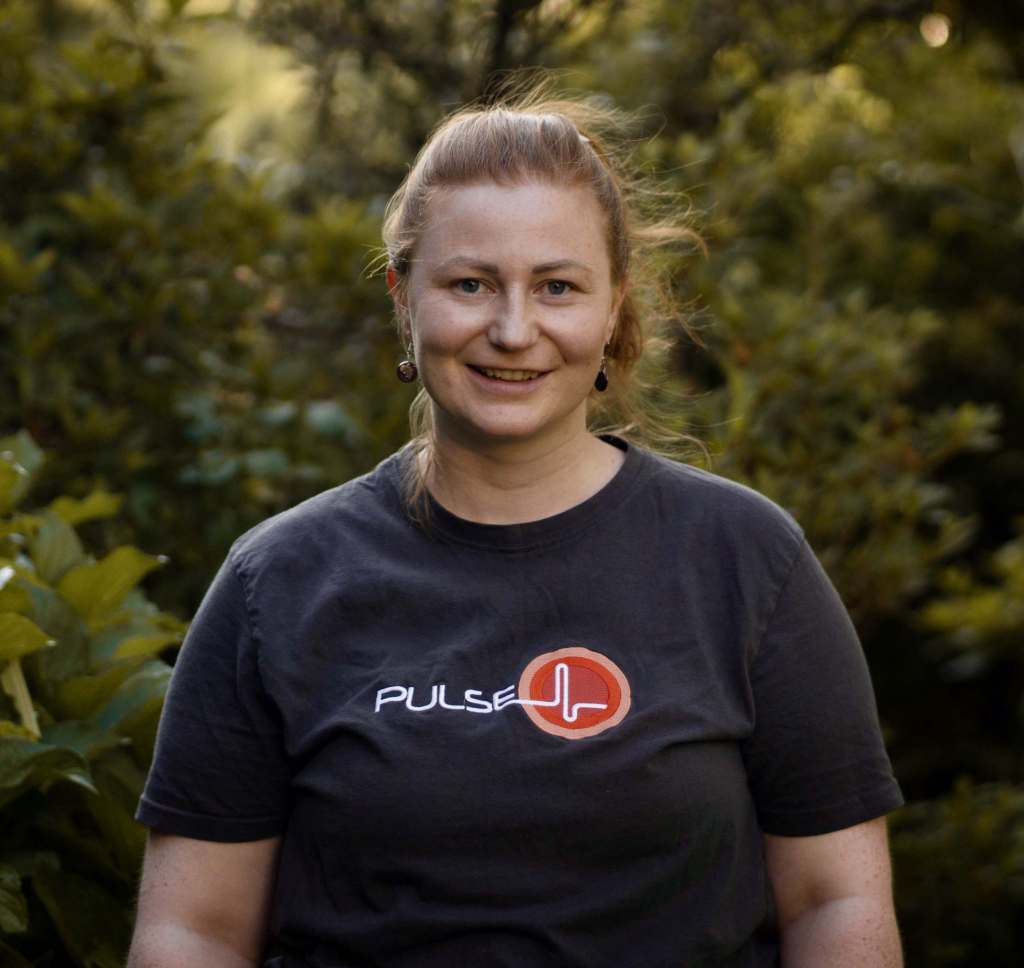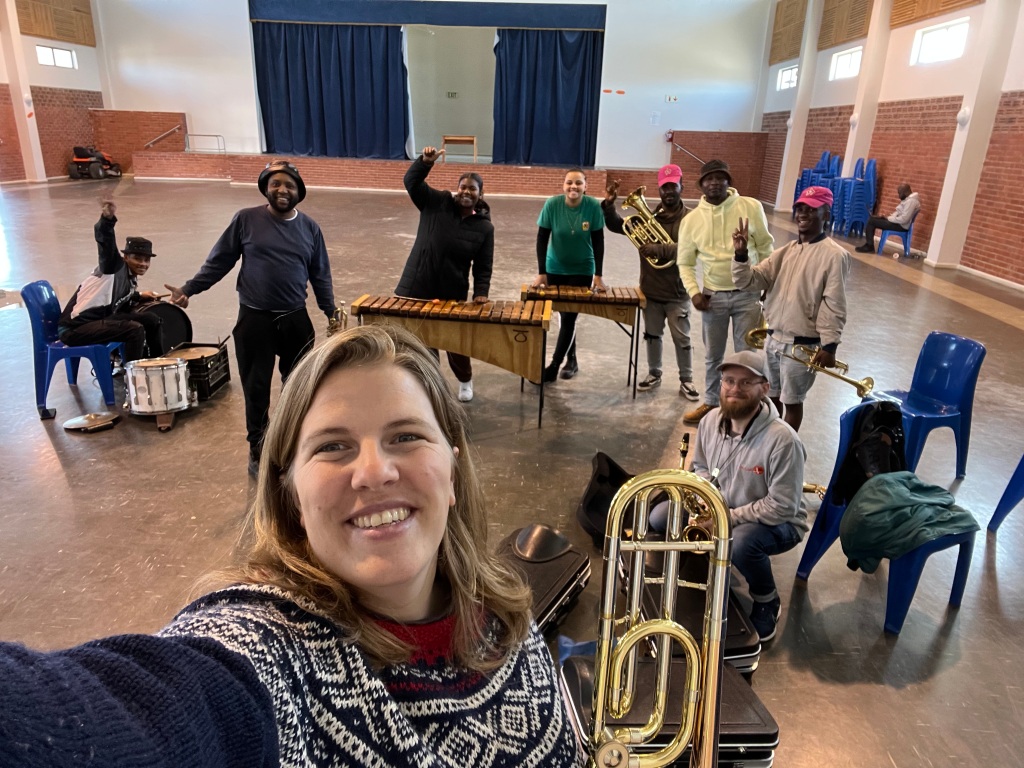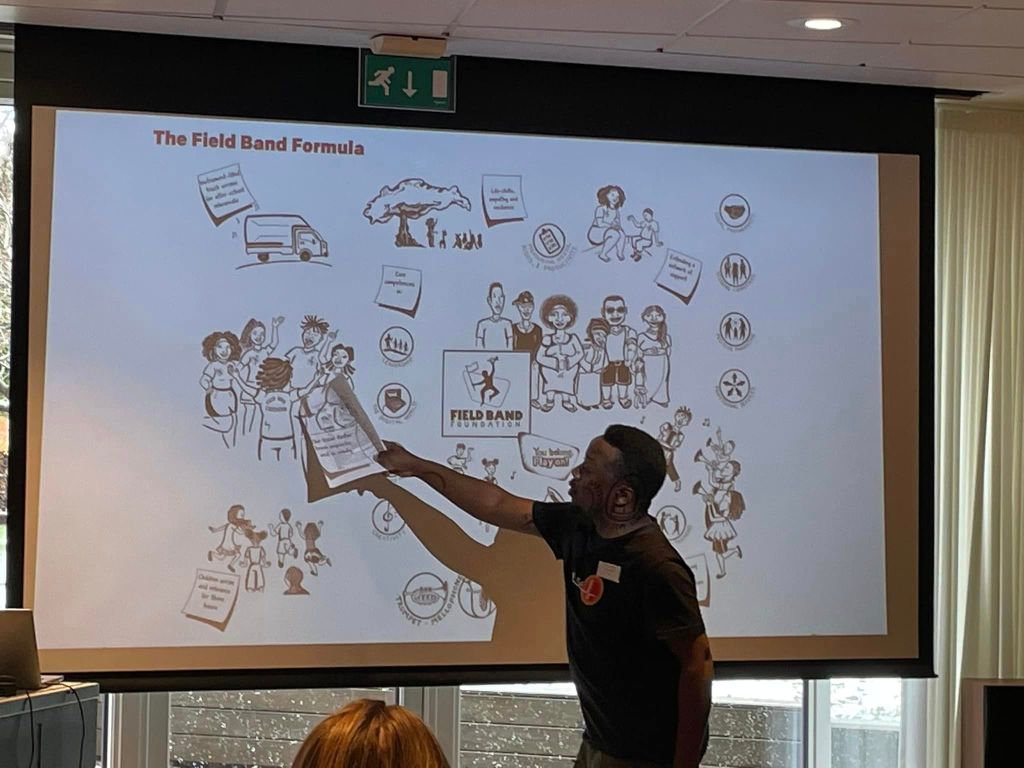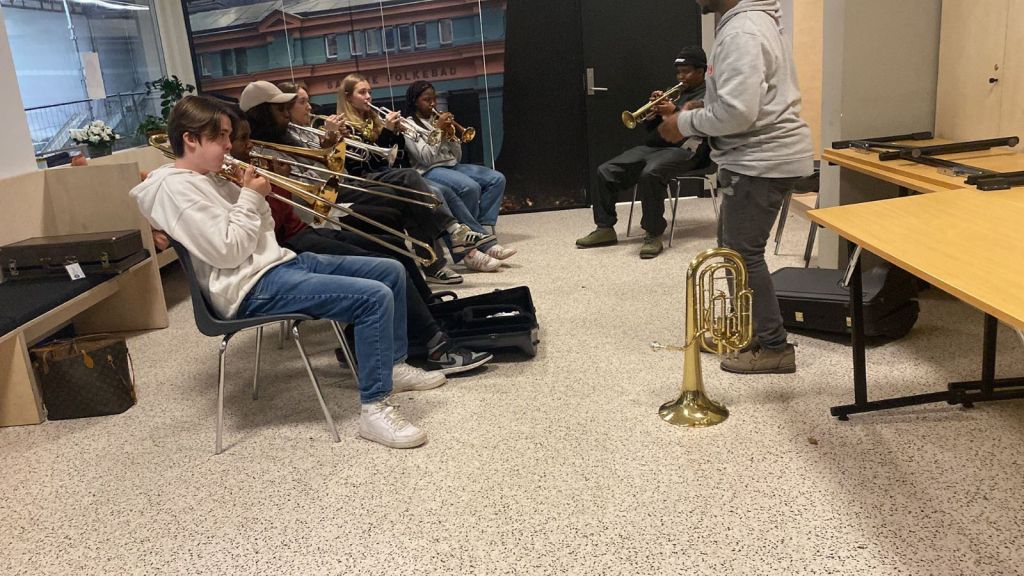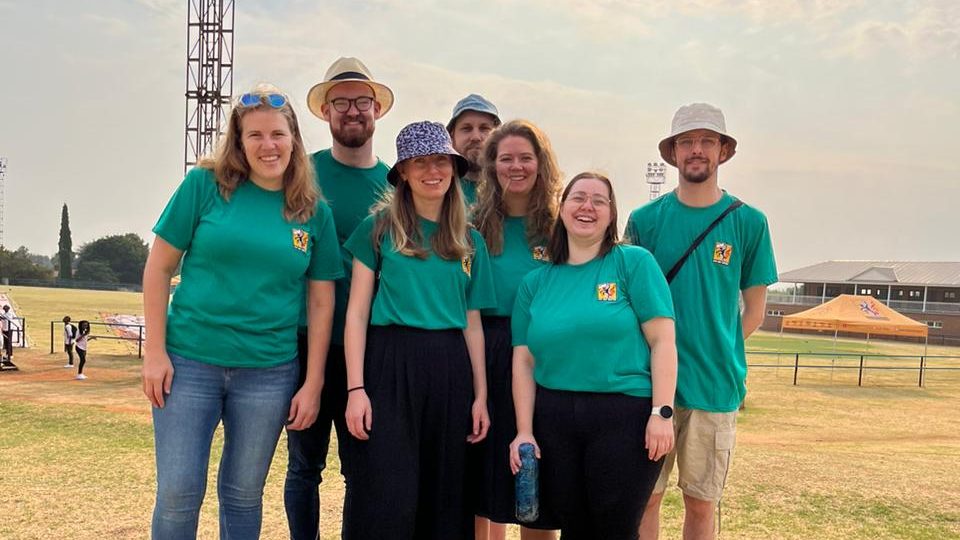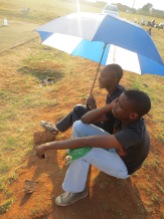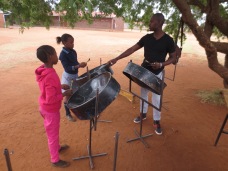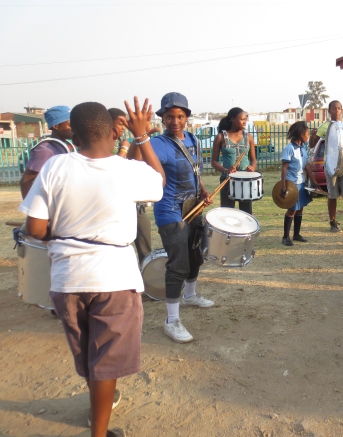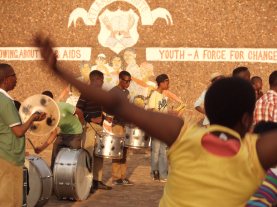Table of content
- What it means to be a PULSE participant in Norway
- Learning the Norwegian band practice setting.
- PULSE takes part in various performances.
- Trainings and workshops
- Youth initiatives
- Adjusting to Weather and Culture
What it means to be a PULSE participant in Norway.
Being a PULSE participant in Norway is more than just sitting in an office for hours or visiting bands and playing, but also producing, expressing, and sharing your musical vision with others. Performing is one method to accomplish this, but it is not the only option; we also engage in a variety of activities and build relationships with organizations that share our interests.

It’s been a fantastic experience of learning how to operate as a team, be autonomous, and, most importantly, be independent and confident. When we left South Africa, we were not all at the same level of leadership, which drove us to learn within the team and support each other in our own growth. It is quite difficult as a PULSE participant when you do not have a proper self-introspection because most of the time you will be struggling to meet the standards of individuals in the team; however, when it comes to this team, we utilized our strong points in a good way to be able to execute our tasks to the best of our ability. Being a PULSE participant is an exciting thing to do when you have the opportunity, but it comes with a lot of duties that you may not have anticipated culturally, especially if you are unfamiliar with Norwegian culture. You learn how to plan things ahead of time, planning an event within a month is not ideal in Norway because you might not have attendance or audience to share your craft with.
The level of trust, independence is so amazing. In most cases, you will wait for someone superior to come and tell you what to do, but as a PULSE participant, you are on a platform that teaches you how to take charge and become a responsible young person. As we go through different workshops and visit different places, we begin to adapt and develop in different ways as individuals. Some of us begin to adapt Norwegian lifestyles not because we have no choice, but because it became our new normal, and even the food and transportation systems are becoming more familiar.

Learning the Norwegian band practice setting
This is the time we spend learning how routine rehearsals are handled daily; it is the time we get to grasp our differences and culture in how learning occurs in comparison to how the Field band rehearses. We used this time to assess, evaluate, and check boxes on how we will approach our next sessions in various workshop setups such as Band visit or Spillkveld. We learned the etiquette technique of educating Norwegians without much difficulty, even though we didn’t always understand the language; however, the conductor’s and band members’ body language became our new ways of interpreting subtitles. When you watch enough, you will always be prepared to know what to share, how to share it, and what to bring back home.
Observations were made mostly in the early stages of our voyage, using various means such as attending band concerts, visiting school bands, and monitoring the NMF social media posts to learn the various levels of playing and the culture of music Nationally. Occasionally expertise had to educate us on how we should approach learning or teaching different band levels, from beginner to advanced. The observation also inspired new teaching methods because we stepped outside of our comfort zones to teach new instruments that some of us had never taught before. Observation provides you with courage and strategies for dealing with challenges.
PULSE takes part in various performances.

Performances were a means of communication and representing our musical culture to the people of Norway. Residents liked the distinctness that we have always contributed to music culture through the incorporation of African movement and the fun that we share with the audience. This was the language we used to communicate with everyone. This became one of the most important activities in front of us, bringing us closer to the people and allowing us to form friendships throughout the year. The confidence and pride that emerged day after day as we used exaggerated moves or dances to present Africa to Europe was on another level.
Juletrefest
The PULSE could not only offer playing or dancing to African music, but the team also participated in different Norwegian bands to improve their knowledge of reading music and acquiring new knowledge of twirling, which is a rare skill that the Field Band Foundation can use in the future. The South Participant teams (from Oslo and Bergen) took part in the Juletrefest, which is a Christmas tree party held in January to raise revenue for the band. During those occasions, the emphasis is on entertaining the children, and the band performs several Christmas tunes that the youngsters are familiar with. As a sign of appreciation, the youngsters receive goody bags at the end of the performances. It was a culture shock and intriguing experience for the PULSE participants to see how Norwegians play random music without training; all they do is meet at the performance location with a box full of music books to start playing; what a beautiful experience.
17th of May
The experience of participating in one of Norway’s most important national holidays, Constitution Day. The PULSE team members were assigned to different bands to represent the project and, more importantly, to observe the beauty of what the day signifies for the Norwegian people. Playing in a typical European marching band and passing through the castle to play for the royal family, where the head of state is always waving his hand to the bands, the people of Oslo and spending time with the children and their families eating ices cream after the performance, has been the most incredible day to experience for the PULSE team.
Trainings and workshops

The program included a variety of training options for different age groups and purposes. Before we can dissect the types of training we provided as PULSE, we’d want to share the qualities and knowledge that the team members brought to the table to contribute to the amazing program that was implemented. The team consisted of three brass musicians (two higher brass players and one lower brass facilitators), a dancer, a percussionist, and a social officer who was always concerned with the social well-being of the workshops wherever we went.
Musicians were responsible for arranging African music in a simple version as part of their work to leave a few arrangements behind for the bands to refer to when the team returned to South Africa. The dancer’s role was to offer a flavour of simple African dance techniques that could be recorded and referenced to whenever Norwegian musicians wanted to perform them. A percussionist would oversee all rhythmic and melodic instruments. All these abilities are required for a full staff team to run a standard field band session in a holistic manner.The team caters to the following workshop types: Band visit in which they visit a band for a maximum of three hours to teach students of various levels one traditional Field Band song, one ice breaker activity, one drum solo, and present a show when parents come to pick up their children at the end of rehearsals.
Youth initiative

PULSE worked with kids in numerous seminars, contributing to NMF programs that would enable youth students stay in the band for a longer period. Included initiatives such as Fast Track, where youths learn how to write or arrange music for their bands utilizing the Field Band approach of listening and working out the rhythm, chords, and melody. The main goal of this program is to involve youths to ensure they can relate to the music they listen to nowadays. Ovingskolletivet is one of the programs developed for helping students practice on their own instruments or do band music homework under the supervision of PULSE with the goal to perfect their music at school.
This effort was carried out for three hours twice a week, with students from four different schools participating. Students can use these facilities in two school locations from 17:00 to 20:00. Sound Lab is a youth initiative that was piloted in the Oslo region of Sagene to engage with young students as part of the production team to motivate them to take responsibility and help NMF recruit new students.
Adjusting to weather and Culture.
As a southern participant, you will understand that there is no such thing as bad weather, only bad clothes. This is how locals teach tourists how to adapt to cold temperatures. You’ll observe and adjust to the fact that nothing stops merely because it’s too cold; you must find a method to make the situation function. This is a lesson that can be learned even when it is not cold outside, but it is an experience and a lesson that no matter how difficult one’s life appears to be as an individual, not everything has to suit you, and there are times you must step outside of your comfort zone and accept the new normal to make the best of the situation.
Written by: Lesley Sebola & Peter Maluleke
Pictures by PULSE 4 round 1 participants










